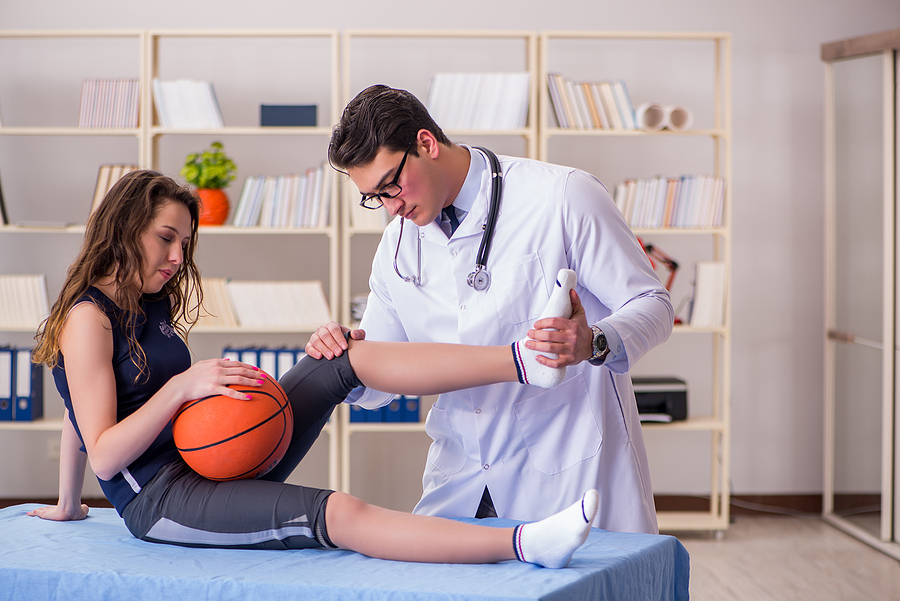No one wants to see their child’s life end during a simple sports practice or game, yet it happens more often than it should. By the end of 2024, over half a dozen teens had passed away during games or practices during that year. They include:
- A 13-year-old football player following a brain injury that occurred during a tackle.
- A 14-year-old Pop Warner player who was jogging during warm-up drills.
- A 15-year-old who died running out to the field for his practice.
- A 15-year-old who died during a water break about 40 minutes into a football practice.
- An 18-year-old football player who collapsed while running across the field.
- A 20-year-old college student player died of a sudden cardiac arrest during practice.
This is not a new phenomenon. A 1980 report from the National Institutes of Health found that 22 of 29 cases involved sudden death after strenuous activity. Undiagnosed heart issues are suspected in many of these deaths. These cases highlight the importance of a thorough sports physical before any teen is cleared to play middle school (junior high), high school, or college sports.
A yearly physical or child wellness exam isn’t the same. While a wellness check looks at your child’s medical history and vaccination needs, a sports physical is far more comprehensive and looks at your teen’s ability to safely play sports. Premium Sports and Orthopedics wants you to be prepared. What does a sports physical entail?
Questions About Your Teen’s Medical History
Before a sports physical, the doctor needs to know about your teen’s health. A thorough family history is also needed. At this time, you and your teen must be completely honest about everything that your teen experiences, past and present, and what health issues run in the family.
A history of heart ailments is important for a doctor to know. If your dad had SVTs and an irregular heartbeat, it’s something that could be passed on genetically. The doctor needs to run additional tests to check for that.
If your teen has allergies or chronic conditions like juvenile arthritis, asthma, or diabetes, you need to tell the doctor about those health issues and any over-the-counter or prescription medications being used.
Finally, your teen’s sports doctor needs to know about your teen’s normal diet, diet before and after a game or practice, use of drugs or alcohol, whether your teen smokes, and what sport is played. Exercise and training routines also need to be discussed.
It helps to bring a sheet of all health issues the teen’s birth parents, grandparents on both sides, siblings, cousins, and aunts and uncles have. You may not have answers to everything, but the more you provide, the more it helps.
Completion of a Thorough Medical Exam
A thorough medical exam is the next step. During this exam, your teen’s doctor will record pulse and blood pressure readings. The doctor will listen to heart, lung, and stomach sounds. Your teen will stand up while the doctor evaluates posture. Exercises to gauge strength and flexibility are also important.
Vision and hearing tests are another part of a sports medical exam. Your teen needs to have good eyesight, with glasses if needed, and hearing, with hearing aids if needed. While there are disabled players who thrive on the field or court, you need to have the full picture to determine if you, the coaches, and your teen feel it’s safe to play without being able to fully see other players in the peripheral vision or judge distance or hear calls.
Finally, the doctor will check the joints, bones, and muscles for possible injuries, deformities, or weaknesses that increase the risk of injury during a game or practice. Again, these don’t rule out the chances of playing, but you have to consider the risks. Plus, the sports and orthopedic team may have options for helping your teen learn the correct postures and motions to build muscle and joint strength.
Recommendations for Additional Tests or Treatments
After all of that is completed, your teen’s sports doctor might order additional tests. One of the options is an ECG or electrocardiogram that checks the heart’s activity, or a cardio stress test, but it’s usually only ordered if there is suspicion of a heart issue, such as something the doctor heard while listening to the heart or family history. Blood tests and urine tests to check for things like steroid usage or drugs may be required.
If your teen’s sports doctor determines that a cardiac screening test is important, a 14-point test is the current American Heart Association recommendation. This test includes the questions discussed above, a full family history, blood pressure readings taken in both arms, listening for heart murmurs while sitting and standing, checking the femoral pulse, and checking for signs of Marfan syndrome.
Marfan syndrome is genetic and changes the proteins that form connective tissue, including vessels, valves, and arteries in the heart. To test for Marfan, an MRI or CT scan of the heart and lungs may be required. Echocardiography is another option. Arm and leg measurements are commonly used to ensure they’re in the correct proportion to your teen’s trunk.
While it’s not always fun having to sit through an expensive test or blood draw, it’s important to get a thorough picture of your teen’s health. You don’t want to be the next parent watching a game or practice to see your teen collapse due to an underlying issue you didn’t know existed.
Receive Clearance for Participation
Once that is done, your teen will hopefully receive clearance. If the answer is no, there are ways to improve stamina, muscle strength, and posture or to treat underlying health issues to ensure your teen can play. Time the medical exam for sports about two months before games and practices start. You want time for your teen to make changes and adjust to those new postures, exercises, equipment, or medications.
Listen carefully to the doctor, and don’t take anything personally. Your teen may feel frustrated or sad that a doctor feels it’s not the right time. In most cases, a little extra work or adherence to diet, lifestyle changes, and possibly medications to treat an underlying health issue are all it takes.
Sometimes, weight loss is the recommended course of action before your teen starts playing sports. Especially if bad eating habits have packed on the pounds during the past year. If that’s the case, your teen deserves a customized plan that accounts for growing bones and muscles. Premium Sports and Orthopedics offers one of Fresno’s best weight loss programs that involve fitness, diet, and behavioral changes. Schedule an appointment online to help your teen make the team this year.







